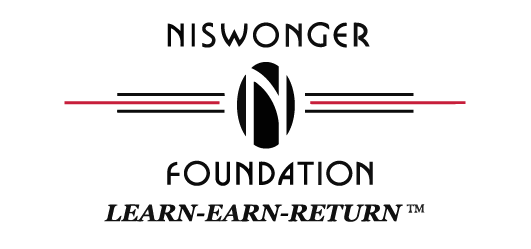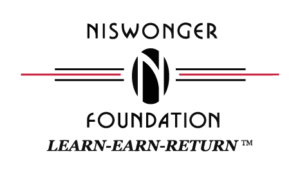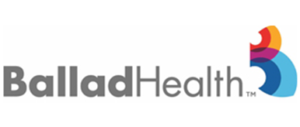Niswonger Foundation Partners With Ballad Health to Define School Readiness
The Niswonger Foundation partners with Ballad Health to convene the Northeast Tennessee Consortium of School Districts to define school readiness and identify a universal screener tool for the region.
With support from Ballad Health’s Department of Population Health through the community Health improvement program, the Niswonger Foundation has convened the Northeast TN Consortium of School Districts, which includes representatives from Bristol, City, Carter County, Cocke County, Elizabethton City, Greene County, Greeneville City, Hamblen County, Hancock County, Hawkins County, Jefferson County, Johnson City, Johnson County, Kingsport City, Newport City, Rogersville City, Sullivan County, Unicoi County, and Washington County.
This stakeholder group first began meeting in August 2022 with a 2-year plan to develop an agreed upon definition of “school readiness” and to come to a consensus on a universal screener for school readiness for the region.
“Fundamental to our work at the Niswonger Foundation is the belief that all children deserve our dedication to preparing them for a successful future. We believe this commitment to children and families must begin at birth. Supporting a child is a critically important team effort, uniting the strength and passion of families, communities, and education professionals. We are proud to be part of this effort to create the best future for our children,” said Dr. Nancy Dishner, President and CEO of the Niswonger Foundation.
The Niswonger Foundation, Ballad Health, and the Northeast TN Consortium of School Districts are now excited to share this work with the community and to invite everyone to join us in supporting the next generation. EVERYONE in the community plays a role in preparing children for school!
School readiness begins at birth and is shaped by families, early care and education providers, and the community. A ready child is prepared physically, emotionally, socially, and intellectually. This means that children begin school ready to participate in and benefit from early learning experiences that help them be successful and excited to learn.
There are five developmental areas related to school readiness:
- Approaches to Learning
- Physical Development
- Language and Literacy
- Social and Personal Competency
- Cognition and Math
These skills are not expected to be mastered; however, they are things to keep in mind as children prepare to begin school. More information on each of these areas can be found HERE.
“As educators, we are preparing each unique, individual child for future success. We not only focus on academics, but help children develop social and emotional skills, how to self-regulate, and provide a foundational opportunity for overall growth,” stated Dr. Tony Dalton with Hamblen County Schools, “Knowing where children are developmentally at the beginning of the year, what they already know, and what they are able to do, help us to plan and meet them where they are to ensure success.”
High-quality early care and education experiences are crucial to supporting young children’s readiness for school. The following are characteristics of high-quality early care and education experiences:
- caregivers who respond to children’s needs
- strong relationships between children and caregivers
- a focus on social and emotional development
- the curriculum provides meaningful, hands-on experiences
- the curriculum focuses on all 5 developmental areas listed above
- evaluation of learning helps teachers decide next steps for all children
- families are a respected partner in children’s education
“Ballad Health recognizes the profound impact that early education and social development have on the long-term well-being of our community. Through our Community Health Improvement initiative, we’re dedicated to ensuring that all children, regardless of their background, have the support they need to thrive from the very start,” said Dr. Paula Masters, Chief Health Disparities Officer with Ballad Health, “This partnership and the efforts of the Northeast Tennessee Consortium of School Districts underscore our belief that health extends beyond the physical. It encompasses emotional, social, and intellectual development that is just as crucial. By investing in our children’s early years, we’re not only fostering healthier, more resilient communities but also paving the way for a future where every child has the opportunity to succeed. We’re truly proud to see the tangible impacts of our investment, affirming our commitment to nurturing the holistic health of our region’s next generation.”
This work also aligns with a regional strategic plan developed by Bright Start Northeast Tennessee, which is an initiative of Tennesseans for Quality Early Education (TQEE). Bright Start TN is a statewide network of community partnerships dedicated to accelerating early learning outcomes and closing achievement and opportunity gaps for Tennessee children from birth through third grade. With the STRONG Accountable Care Community serving as the convening entity for Bright Start Northeast Tennessee, a strategic plan for the region was developed to increase 3rd grade reading and math proficiency over the next three years. Universal screening was identified as a Bright Start strategy, as well.
“It has been a privilege to attend the meetings being led by Mia Hyde and Tony Dalton. This project has been conducted with integrity; with ample attention given to research, relationship-building, and has provided an opportunity for teachers to provide valuable input,” said Beth Huber, Bright Start NETN Fellow, “The data that will be collected from the universal screeners will highlight strengths of the school districts and their surrounding communities while also identifying areas for growth. Together the districts can support each other’s efforts to strengthen systems in their communities. This can include collaborating with existing parent education programs, early childhood education programs, community resources, and after-school programs. Additionally, the data can drive strategic planning to support children, families and teachers. We are extremely grateful for this important work that has been done by the Niswonger Foundation and the representatives from the eighteen school districts.”


